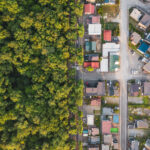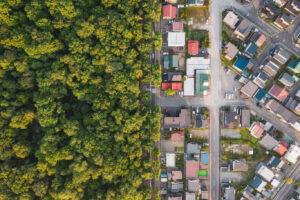FutureTales Lab by MQDC Forecasts 3 Environmental Impacts from COVID-19


28 May 2020, Bangkok – The global COVID-19 crisis has had many economic and lifestyle impacts as FutureTales Lab by MQDC has already covered. But FutureTales Lab by MQDC, as a futurology center, also forecasts great environmental effects. After a short-lived improvement, the global focus on solving the COVID-19 outbreak may distract from pressing environmental challenges.
Dr. Karndee Leopairote, Chief Advisor of the FutureTales Lab by MQDC, said that environmental challenges cannot be resolved in the short term. All sectors must work together, ranging from individuals using less plastic to the big picture of urban design that increases green areas, reduces pollution, applies clean energy, and is friendly to all life. THE FORESTIAS project provides an example, as a forest-based community that will be home to creatures like birds, snakes, and even fireflies, enhancing nature and well-being in the city and increasing urban green space.
Dr. Pannin Sumanasrethakul, Foresight Research Director of FutureTales Lab by MQDC, said that “Futures Cone” analysis found 3 future scenarios for potential post-COVID environmental changes:
1. Probable Futures: Worldwide air pollution fell 60% year-on-year because of the lockdown. Seoul in South Korea registered a 54% drop in air pollution and Wuhan in China a 44% decline. But the reduction is unlikely to be sustainable. Past data shows that global energy use will surge once the epidemic is over. After the crisis, the environment will likely suffer more and more from energy consumption.
2. Plausible Futures: People kept at home in the lockdown drove up plastic waste in Bangkok in April. Volume surged 62% year-on-year to 3,432 tons because of home deliveries of food and other items. Bags and packaging accounted for 80% of plastic waste. Thailand will face a heavy burden in managing plastic waste and ocean plastic will rise.
3. Possible Futures: Central and eastern Thailand will likely experience floods in August-October, according to the Climate Change and Disaster Center of Rangsit University. FutureTales Lab by MQDC analyzed the impact if the floods cause a second wave of COVID-19. Although studies find a low risk of the virus spreading through water, laboratory tests suggest it can spread in contaminated water for several weeks.
All 3 future scenarios show how the epidemic’s environmental impact will affect well-being. FutureTales Lab by MQDC has further analyzed the situation through the model of “Riding 2 Curves” to present the shift from current approaches to new ones. The environment should be valued as a communal asset, boosting public engagement in conserving resources and using them sustainably. Enhancing public participation would be more sustainable than focusing on laws and penalties.
“This crisis can be seen from another perspective as a new start and a chance to change to protect the environment. We should all reflect and consider long-term environmental protection. We should pay more attention to every action that affects the environment because humans are part of the global ecosystem,” said Dr. Pannin.